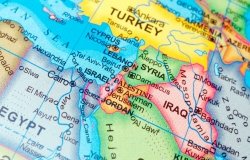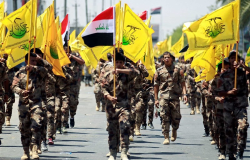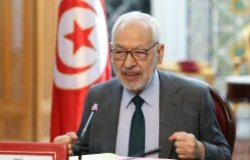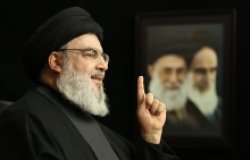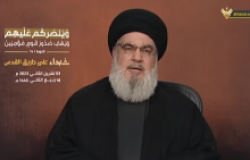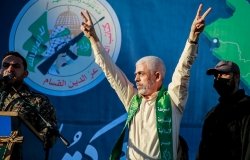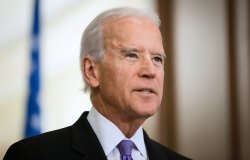Saudi Activists Challenge Government
Saudi Arabia has redoubled efforts to silence human rights and civil society activists since the 2011 Arab uprisings, according to a new report by Human Rights Watch.
Saudi Arabia has redoubled efforts to silence human rights and civil society activists since the 2011 Arab uprisings, according to a new report by Human Rights Watch. Riyadh has employed “travel bans, termination of employment, smear campaigns, as well as detentions and prosecution.” Some activists have challenged the Sunni monarchy’s ultraconservative take on Islamic law. Samar Badawi, for example, challenged the male guardianship system. Saudi women cannot travel, conduct business or undergo certain medical procedures without permission from their male guardians. The following are excerpts from the report.
Civil society and human rights activists in Saudi Arabia are struggling for greater popular political participation, judicial reform, and an end to discrimination against women and minorities. Saudi authorities have responded by cracking down on rights defenders, quashing calls for change, and preventing the development of an opposition movement.
This report presents the stories of 11 prominent Saudi social and political rights activists, and their struggle to resist government efforts to silence them. Saudi Arabia’s sweeping campaign against human rights and civil society activists has included threats, intimidation, investigations, prosecutions, and detentions. The 11 individuals profiled in this report demonstrate some of the struggles and successes of Saudi Arabia’s small but growing activist community.
Samar Badawi: Litigating for Women’s Rights
Samar Badawi, 33, is a women’s rights activist who has challenged Saudi laws that allow male guardians to restrict women’s freedom of movement and ability to marry, even in cases where the guardian is responsible for abuse. She has petitioned for an end to the ban on women’s ability to drive and for women to be allowed to vote and run for elected office. She became a rights activist in 2011 after having suffered personally for a decade under Saudi Arabia’s discriminatory “guardianship” laws, including a seven-month imprisonment on the charge of parental disobedience…
Waleed Abu al-Khair: Rights Defender On Trial
Waleed Abu al-Khair is a lawyer and founder of the Monitor of Human Rights in Saudi Arabia, a human rights organization that authorities have refused to license.
Abu al-Khair petitioned King Abdullah in 2007 to permit the establishment of the Monitor of Human Rights in Saudi Arabia but received no reply. Weeks later, the Saudi Ministry of Education revoked a governmental study abroad scholarship that Abu al-Khair had won, without explanation. Abu al-Khair completed his studies at his own expense...
Manal al-Sharif: A Driving Force for Change
In 2011, Manal al-Sharif, 34, became the face of a revived campaign for the right of Saudi women to drive: hundreds of thousands of people watched a video of her driving a car in the Eastern Province city of al-Khobar within days of the video’s publication online.
The Saudi Ministry of Interior does not issue driving licenses to women, making it effectively illegal for them to drive. Even in cases where women have international driving licenses, police have arrested or reprimanded them, or forced their male guardians to sign pledges that they would not drive again. Saudi Arabia’s ban on women drivers has forced women to rely on male relatives and privately-hired chauffeurs to conduct such basic tasks as running errands or going to work. Women have complained that hiring drivers is costly. The authorities have not sought to enforce the ban on women driving in some rural areas, where it is practiced outside their purview…
Mikhlif al-Shammari: Bridging between Sects
Mikhlif bin Daham al-Shammari, a 59-year-old journalist and a human rights activist, has sought to use his role as the Eastern Province representative of a large Sunni tribe from the central Najd region of Saudi Arabia to improve relations between Sunnis with the local Shia population.
Security forces have arrested al-Shammari three times since 2007, and on June 17, 2013, Saudi Arabia’s Specialized Criminal Court, a court set up to try terrorism-related cases, convicted him of “sowing discord” and other offenses and sentenced him to five years imprisonment followed by a 10-year-travel ban. The charges are based on his writings and attempts to expose human rights abuses in the kingdom; al-Shammari appealed the sentence in July 2013...
Raif Badawi: Persecuted for Encouraging Online Debate
Raif Badawi is the 31-year-old editor and co-founder of the Free Saudi Liberals website, an online platform he established in 2008 to encourage debate on religious and political matters in Saudi Arabia. Badawi and others on the website declared May 7, 2012 as “a day for Saudi liberals,” hoping to garner interest in open discussion about the differences between “popular” and “politicized” religion, Su’ad al-Shammari, the website’s director, told Human Rights Watch.
Police arrested Badawi in Jeddah on June 17, 2012. On July 29, 2013, the Jeddah Criminal Court convicted him of insulting Islam by setting up a liberal website and violating provisions of Saudi Arabia’s 2007 anti-cybercrime law. The court sentenced him to 7 years in prison and 600 lashes...
Fadhil al-Manasif: Defender of Detainees Detained
Fadhil Makki al-Manasif, 26, is a photographer and a member of the Adala Center for Human Rights (Adala Center), a rights organization in the Eastern Province. Security forces have arrested al-Manasif three times since 2009. He is currently detained and faces charges including “sowing discord,” “inciting public opinion against the state,” and inviting the international media to demonstrations, as well as participating in gathering information about demonstrations…
Click here for the full report.
Related Program

The Islamists
Learn more about Hamas and how it relates to similarly aligned organizations throughout the region. Read more

